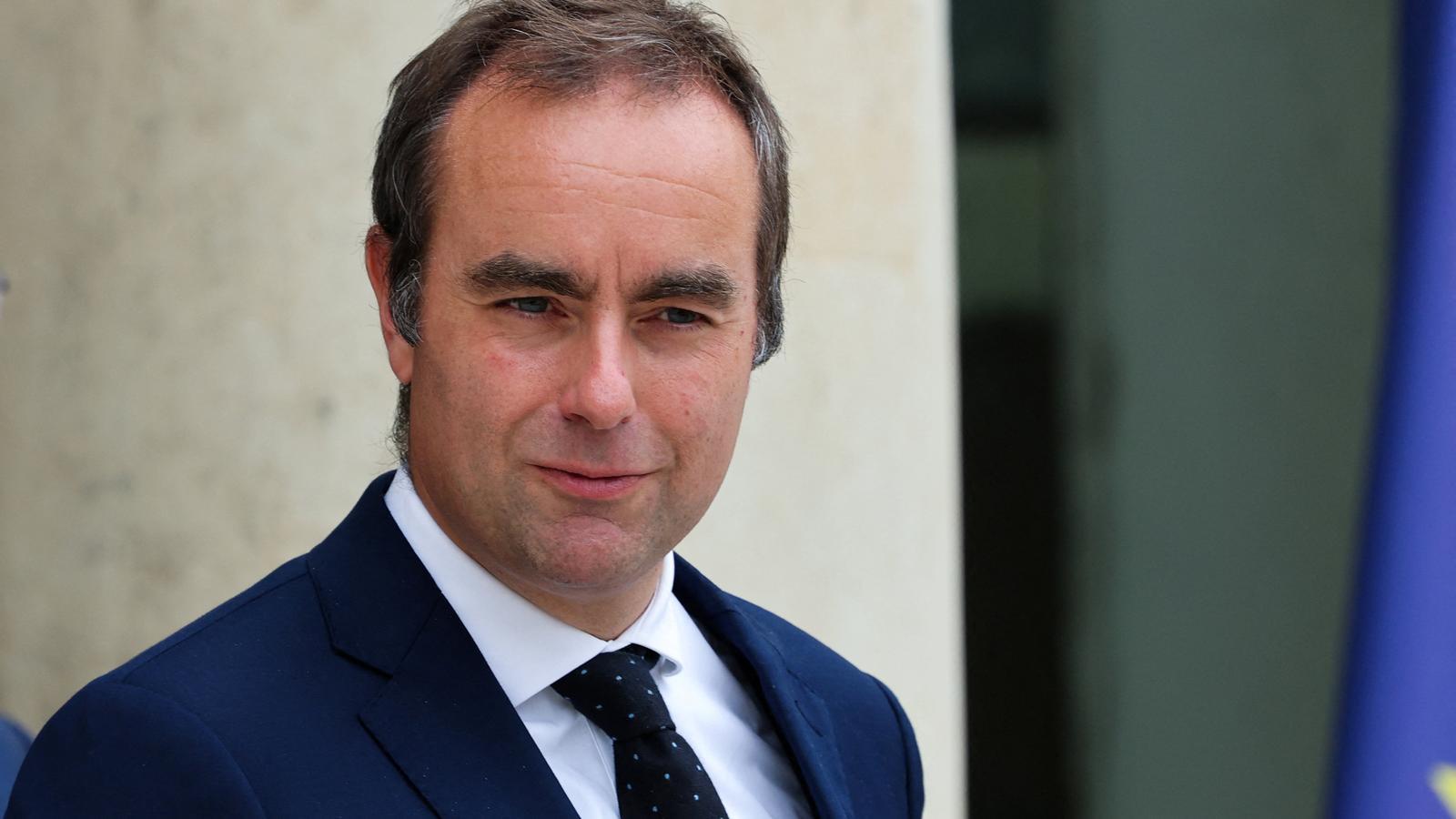Macron appoints a new prime minister from his party, Sébastien Lecornu.
The new head of government is a 39-year-old former Macronist military officer from the right and until now Minister of Defense.


ParisThis time, the President of the Republic hasn't even waited 24 hours to appoint a new prime minister. The day after the vote of no confidence that brought down François Bayrou's government and just hours after submitting his resignation, Emmanuel Macron on Tuesday appointed Sébastien Lecornu, 39, until now Minister of Defense, as his new head of government. He is from the president's party and one of his closest circle. Macron regains direct control of the government.
With this swift appointment, Macron seeks to prevent the political crisis and instability in France from worsening further, especially after France's risk premium surpassed Italy's on Tuesday morning and became the highest in the eurozone. The country's difficult economic situation—with sky-high debt and a deficit far above what Brussels allows—makes the appointment of a new government urgent. Now the new prime minister will have to appoint a new executive, and the move is also expected to be swift.
With Lecornu, Macron puts an end to cohabitation—when a prime minister is of a different political persuasion than the president—and once again places a loyal person at the head of the government. The new head of the executive is one of the president's most loyal politicians and one of the few ministers to have survived the changes of government in the last three years: he was appointed defense minister under Élisabeth Borne's government and held the post first under Gabriel Attal and then under Michel Barnier and François Bayrou. It remains to be seen which parties are part of the government and which are willing to support him in parliament, a key issue to prevent the new prime minister from being immediately censured.
From the right
With his choice, Macron once again rules out giving the left the opportunity to govern—there had been speculation in recent days that he might be a Socialist. Lecornu, although a member of the Renaissance, comes from the right-wing Republicans (LR). This is no minor detail. The fact that he has chosen a figure close to the conservatives has outraged the Socialists, who have made it clear that they will not be part of the future government nor will they support him in parliament.
In a statement, the Socialists accuse the president of "taking the risk of legitimate social anger and institutional gridlock in the country" with Lecornu's nomination. "Emmanuel Macron is determined to follow a path that no Socialist will participate in. A path that has led to failure and disorder and that worsens the crisis, mistrust, and instability," the party states. The reaction of the Socialists, considered the most moderate party on the left, predicts many difficulties for the new prime minister in governing and passing the budget.
Criticism of Le Pen
On the far right, Marine Le Pen has also criticized the appointment of a new prime minister. Le Pen's National Rally had called on Macron to call early legislative elections, a possibility the head of state appears to have ruled out by so quickly choosing a replacement for Bayrou. "The president is firing the last bullet of Macronism," bunkered with his small circle of faithful," wrote Le Pen on X.
In a message also on X, the new head of government thanked the president for his appointment and promised to work for the stability of France: "The President of the Republic has entrusted me with the task of building a government with our direction and the defense of our in and institutional for the unity of the country."
Ex-military and reservist
Lecornu's closeness to the right alienates left-wing parties, but will make it easier for Les Républiques to remain one of the government's parliamentary pillars. Lecornu was a member of the LR party until 2017, when he was appointed Secretary of State and switched his political membership from the right to that of La République en Marche, Emmanuel Macron's party, later renamed Renaissance. The new head of government was also Minister for Overseas Territories and is a former military officer. He is currently a reserve colonel in the French Gendarmerie.
The transfer of power between Bayrou and Lecornu will take place this Wednesday at noon, a day of social mobilization in France. The country will experience a day of protests today, called before the political crisis, against the previous government's intention to implement cuts. The organizers are calling for a "lockdown" of France and encouraging citizens not to go to work or take their children to school. The extent of the protest, which is supported by the radical left, is unclear, but the police are planning a massive deployment of 80,000 officers. Despite the change of prime minister, the mobilization has continued and will serve as a warning to Lecornu.
The new prime minister's number one priority when he takes office will be to draft a new budget proposal for 2026, the same one that brought down the previous two governments. He doesn't have much time: the clock is ticking because the new prime minister only has one month to present it to the Assembly and another month to negotiate. The budgets should be approved before the end of the year.
